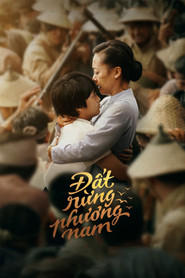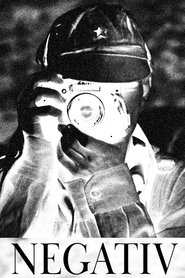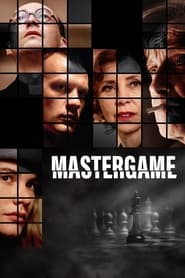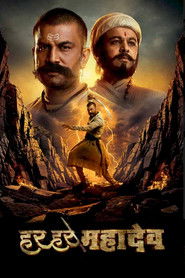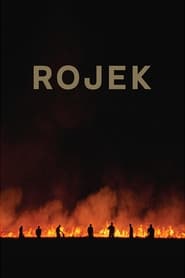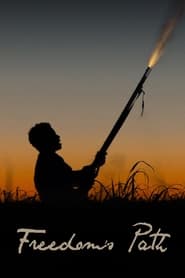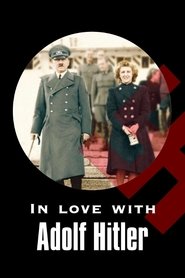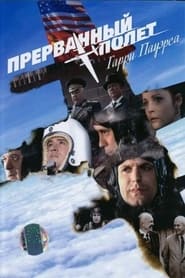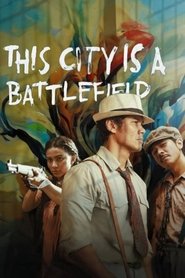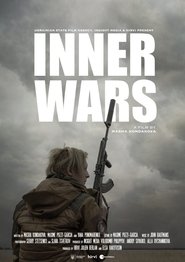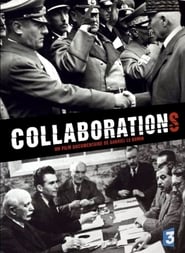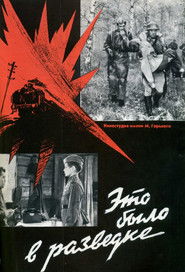Top Rated War Movies on Tub Tv - Page 181
-
Song of the South
2023
Song of the South
2023
star 4.8As French colonial rule reaches a violent end in Vietnam, a 12 year old boy makes a treacherous journey in search of his estranged father. -
Yaathisai
2023
Yaathisai
2023
star 7Set in the 7th century, Kodhi, an young hot-blooded warrior from the Einar clan, believes that his birth is destined to free his fellows from the nomadic life that they lead and goes on an impossible mission, to revolt against and defeat the Pandiyan king Ranadheeran. -
Negativ
2023
Negativ
2023
star 8A photographer during the Soviet-Afghan war becomes obsessed with a mysterious figure that appears in his images every time the person photographed dies. -
Mastergame
2023
Mastergame
2023
star 8.6A young, revolutionary couple aboard the last train leaving Budapest after the Russian invasion of 1956. Based on a novel by the Austrian writer Stefan Zweig. -
The Poet
2022
The Poet
2022
star 8A newly appointed teacher arrives at a remote village school in 1947. The famous journalist and distinguished poet was downgraded for illegal publications and forbidden anti-Soviet verses. Suspicious locals still prefer to test his loyalties, while children wilingly recite his verses from 'To My Soviet Motherland', written under pressure to prase Uncle Lenin. Eventually, an unforgotten friend shows him a secret wintery path to the Dainava resistance platoon's underground bunker. -
Har Har Mahadev
2022
Har Har Mahadev
2022
star 8The young Shivaji Shahaji Bhosale is building the foundation of Hindavi Swarajya. This is the beginning of a memorable journey for the man who will go on to be known as Chhatrapati Shivaji Maharaj. But to turn this dream of Swarajya into reality, he must unite the Watandars. -
Shimamori Tower
2022
Shimamori Tower
2022
star 7.6Together with Shimada Akira (Hagiwara Masato), the last appointed governor of Okinawa during the war, Arai Taizo (Murakami Jun), the chief of police of Okinawa Prefecture, goes beyond his duties and strives to protect the lives of the citizens of the prefecture. As the ravages of war intensify, the two, who each carried a heavy cross during the Battle of Okinawa, desperately devote themselves to saving the lives of the Okinawan people, with the belief that "life is precious." A human drama, set in Okinawa at the end of World War II, depicting the preciousness of human life. Directed by Igarashi Sho of One Step on a Mine, It's All Over. -
Rojek
2022
Rojek
2022
star 6.7After the impressive Gulistan, Land of Roses (VdR 2016), the Kurdish filmmaker Zaynê Akyol returns with these conversations with imprisoned members of the Islamic State, alternating their words with aerial views of the countryside. An unexpected look at a far-reaching current political issue and a film whose subject matter and rhythm create an impressive cinematic object. -
Freedom's Path
2023
Freedom's Path
2023
star 7.9A Union soldier flees from battle and is rescued unexpectedly by free Black man Kitch and his friends. Risking everything, Kitch takes William deep into the woods to the safety of his adopted home. It's here that William discovers Kitch is a part of secret community of freed slaves, who run a portion of the Underground Railroad. When a ruthless and desperate slave catcher discovers the underground network, he conspires to bring it burning down to the ground. -
In Love with Adolf Hitler
2007
star 6.3This film captures the affair, full of love, lust, and despair, between Adolf Hitler and Eva Braun, from 1932 until their double suicide in 1945. -
Infiltré à Auschwitz
2021
-
This City Is a Battlefield
2025
star 7.1In war-torn Jakarta 1946, a haunted violinist ordered to bomb a colonial theatre sees his plan unravel when a charismatic rebel falls for his wife—jeopardising Indonesia’s freedom and their lives. -
The Musicians
2021
The Musicians
2021
star 5.2Roman Cudakowski, for his friends Cudak, plays in a band at weddings and city parties. During the occupation, the musician did not do well. Entrances to the premises for Germans are an opportunity to earn money. However, they cannot imagine themselves orchestras without a violinist. Cudak takes the gifted Szymon Akerman out of the ghetto to concerts, with whom he did not agree before the war. In the new reality, they both need each other: Cudak can earn money by playing with Akerman, has a chance to survive. One day, Roman decides to permanently take the violinist and his family from the ghetto and hide them, risking his life, in his home. -
Wolves of War
2023
Wolves of War
2023
star 5.5Decorated British officer Jack Wallace must lead a band of Allied commandos across enemy lines to rescue Professor Hopper, an American scientist held hostage by the Nazis. With information that could turn the tide of war, these unlikely heroes must traverse enemy territory with an untrained US civilian, avoiding brutal Nazi mercenaries and non-stop bombing – with the fate of the war resting on their shoulders, the outcome of this mission will change the world forever; failure is not an option. -
Voyage of the Chimera
2021
star 5A young, civilian aristocrat with no practical military experience must lead his bottom-dollar crew on a dangerous mission and overcome his youth, inexperience, and self doubt in this microbudget sci-fi drama. -
Inner Wars
2020
Inner Wars
2020
star 5.8Since the uprising of a pro Russian insurgency in eastern Ukraine in 2014, hundreds of women joined the army. Only a few made it to the front line. Filmmaker Masha embeds herself in the war zone to follow the daily life of three of them. By sharing the intimacy of these fighters, Masha soon becomes a victim of this brotherhood conflict jeopardizing this film and her life. -
Collaborations
2014
-
Truth Makes Free
2020
Truth Makes Free
2020
star 7.2A Security Service Major wishes to "buy" gullible priest Zieja and turn him into an agent who will discredit the opposition. The priest's interrogations become a natural pretext for a journey through the history of Poland in the twentieth century: from the Bolshevik war of 1920, through World War II, up to modern times. It turns out that the seemingly naive Father Zieja is actually a clever rebel. -
It Was an Intelligence Mission
1969
star 5.6The film tells about the fate of a twelve-year-old intelligence officer, a hero of the Great Patriotic War.
 Netflix
Netflix
 Amazon Prime Video
Amazon Prime Video
 Apple iTunes
Apple iTunes
 Apple TV Plus
Apple TV Plus
 Disney Plus
Disney Plus
 Google Play Movies
Google Play Movies
 Paramount Plus
Paramount Plus
 Hulu
Hulu
 HBO Max
HBO Max
 YouTube
YouTube
 fuboTV
fuboTV
 Peacock
Peacock
 Peacock Premium
Peacock Premium
 Amazon Video
Amazon Video
 The Roku Channel
The Roku Channel
 AMC+
AMC+
 Kocowa
Kocowa
 Hoopla
Hoopla
 The CW
The CW
 Vudu
Vudu
 Starz
Starz
 Showtime
Showtime
 PBS
PBS
 Pantaflix
Pantaflix
 FXNow
FXNow
 Tubi TV
Tubi TV
 Kanopy
Kanopy
 Comedy Central
Comedy Central
 Crunchyroll
Crunchyroll
 Microsoft Store
Microsoft Store
 Redbox
Redbox
 Sun Nxt
Sun Nxt
 ABC
ABC
 DIRECTV
DIRECTV
 Crackle
Crackle
 Fandor
Fandor
 Plex
Plex
